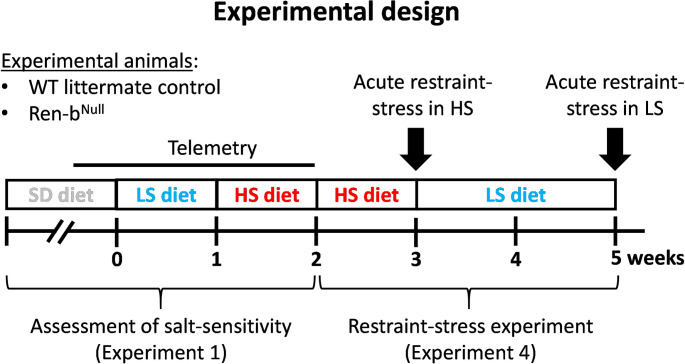Fig 1. Experimental protocol.
The assessment of salt sensitivity (Experiment 1) and susceptibility to restraint-stress (Experiment 4) were performed in the same animals. Male Ren-bNull or wildtype (WT) littermate controls were instrumented with a radiotelemetry catheter and housed in a quiet environment for blood pressure and heart rate measurements. In experiment 1, baseline arterial blood pressure and heart rate were recorded for 3 days under a standard salt diet (SD, 0.8% NaCl). Subsequently, the diet was switched to a chow containing low sodium (LS, 0.02% NaCl), and data were acquired for 7 additional days. Finally, the diet was switched from low to high salt containing diet (HSD, 4% NaCl), and data were acquired for 7 additional days. To study responses to acute restraint stress in both HSD and LSD, the animals were continued on HSD for an additional week. By the end of the second week on HSD, mice were placed to an acrylic restrainer to assess the acute cardiovascular responses to restraint-stress. Next, mice were fed LSD for two weeks and the acute responses to restraint-stress were reassessed again.

